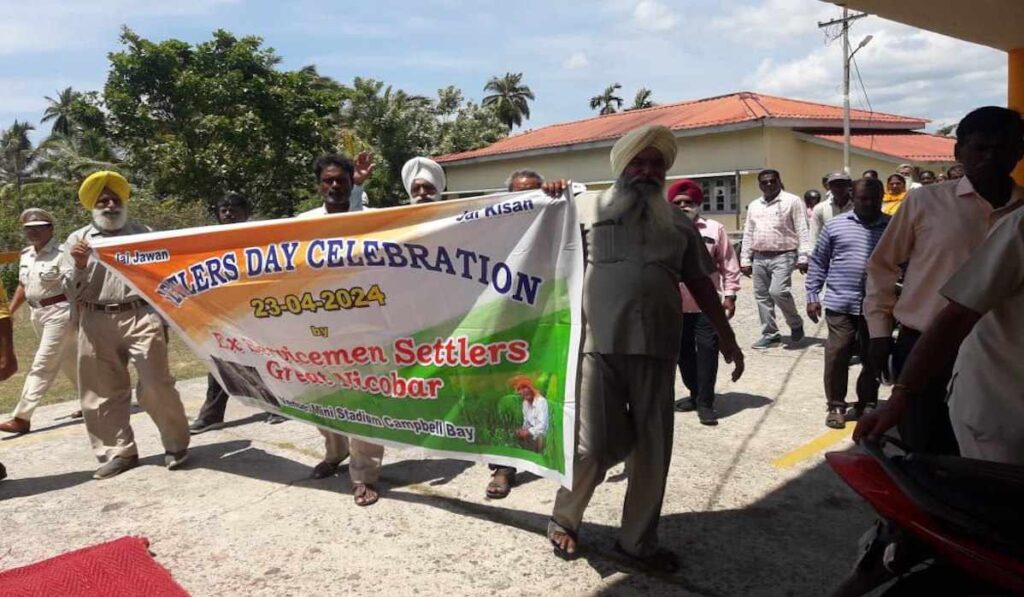Tarun Karthick
Port Blair, 23 April 2024
In a poignant commemoration of history, today marks the 55th anniversary since the arrival of 69 pioneering families of ex-servicemen on the shores of Great Nicobar Island. On April 23, 1969, these families, hailing from various districts of Punjab, disembarked from MV Andamans through a pontoon onto a wooden jetty behind what is now known as the Police Marine Force Building in Campbell Bay.
The journey of these settlers was arduous, starting from Ludhiana Railway Station on April 14, 1969, where they boarded a train bound for Kolkata. From the bustling docks of Kidderpore in Kolkata, the MV Andamans set sail for Port Blair, eventually making its way to Campbell Bay after a brief stopover.
The arrival of these families marked the dawn of a new era for Great Nicobar Island. Their resilience and determination transformed Campbell Bay from a quiet outpost into a thriving town. Over the years, more ex-servicemen settlers joined their ranks in 1970, 1974, 1977, 1979, and 1980, along with 11 families of fishermen.
The challenges faced by the settlers of Great Nicobar were unparalleled, as they established their homes in one of the remotest parts of the Andaman and Nicobar Islands. It was the aftermath of the 1962 Indo-China war that prompted the Indian government to rethink its strategy for Great Nicobar. Recognising the island’s strategic importance, the government initiated the settlement of ex-servicemen, to prevent its occupation by any foreign power.
Today, Great Nicobar stands as a beacon of development, with plans underway to transform it into a major transshipment port. This remarkable progress owes its gratitude to the perseverance, struggles, and sacrifices of the 265 out of 330 Ex-Servicemen Settler families who chose to remain on the island, living their lives in isolation but steadfast in their commitment to their nation’s security.
As Great Nicobar commemorates this significant milestone, the legacy of those pioneering settlers continues to inspire generations, reminding us of the indomitable spirit that shaped the destiny of Great Nicobar Island.

